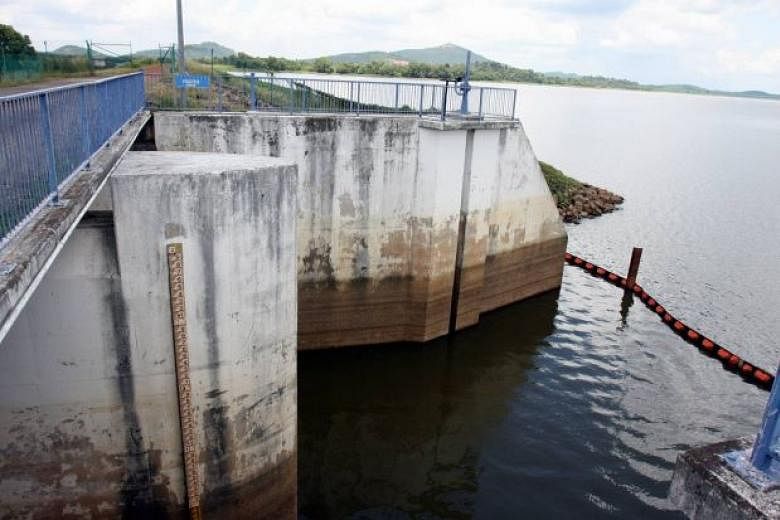KUALA LUMPUR - Water in Malaysia's Johor state has been hit by another round of ammonia pollution which shut down a treatment plant and cut water supply to 225,000 consumers.
Utility firm SAJ Ranhill on Saturday (Nov 18) night said in a statement that raw water in the Sembrong dam in Kluang district was found to have high ammonia content and that it had stopped operations at its Sembrong West water treatment plant.
But the plant resumed operations on Sunday morning, the company told The Straits Times, and water supply will be restored to affected consumers in stages starting from this evening.
"Kluang consumers will get their water supply in stages starting late this evening," said Elias Ismail, SAJ Ranhill's general manager for production and distribution on Sunday.
A palm oil processing factory was identified as the source of the contamination, after the Department of Environment conducted a site visit with Johor State Health, Environment, Education and Information Executive Committee chairman Ayub Rahmat.
According to national news agency Bernama, Datuk Ayub said the factory's operating licence was immediately suspended for three months to allow the factory operator to conduct cleaning works and ensure factory waste is not discharged into a nearby river.
Mr Ayub said he has also requested Johor's water regulator Badan Kawalselia Air Johor to impose the maximum compound fine of RM250,000 (S$81,436) on the factory operator.
This latest case of water pollution comes weeks after two million consumers in Johor Baru, Kulai and Kota Tinggi were affected by water cuts after three water treatment plants along the Johor River, also operated by Ranhill, were forced to suspend their operations over ammonia pollution.
The pollution was later traced to an illegal fertiliser processing plant and poultry farm operating by the river in Kluang.
Kluang MP Liew Chin Tong said water cuts have become a norm in the district, with various reasons given for rationing, including upgrading, pollution and scheduled maintenance.
"At the moment the level of water stored in the water reservoir is insufficient to cope with demand during down time," said Mr Liew in a post on his Facebook page.
"With proper planning, even if problems exist at the supply source, it would not disrupt normal usage," he added.
Singapore was not affected by the plant's closure because the Sembrong dam is not part of the Johor River catchment from where Singapore draws its water.
Additional reporting from Audrey Tan in Singapore


